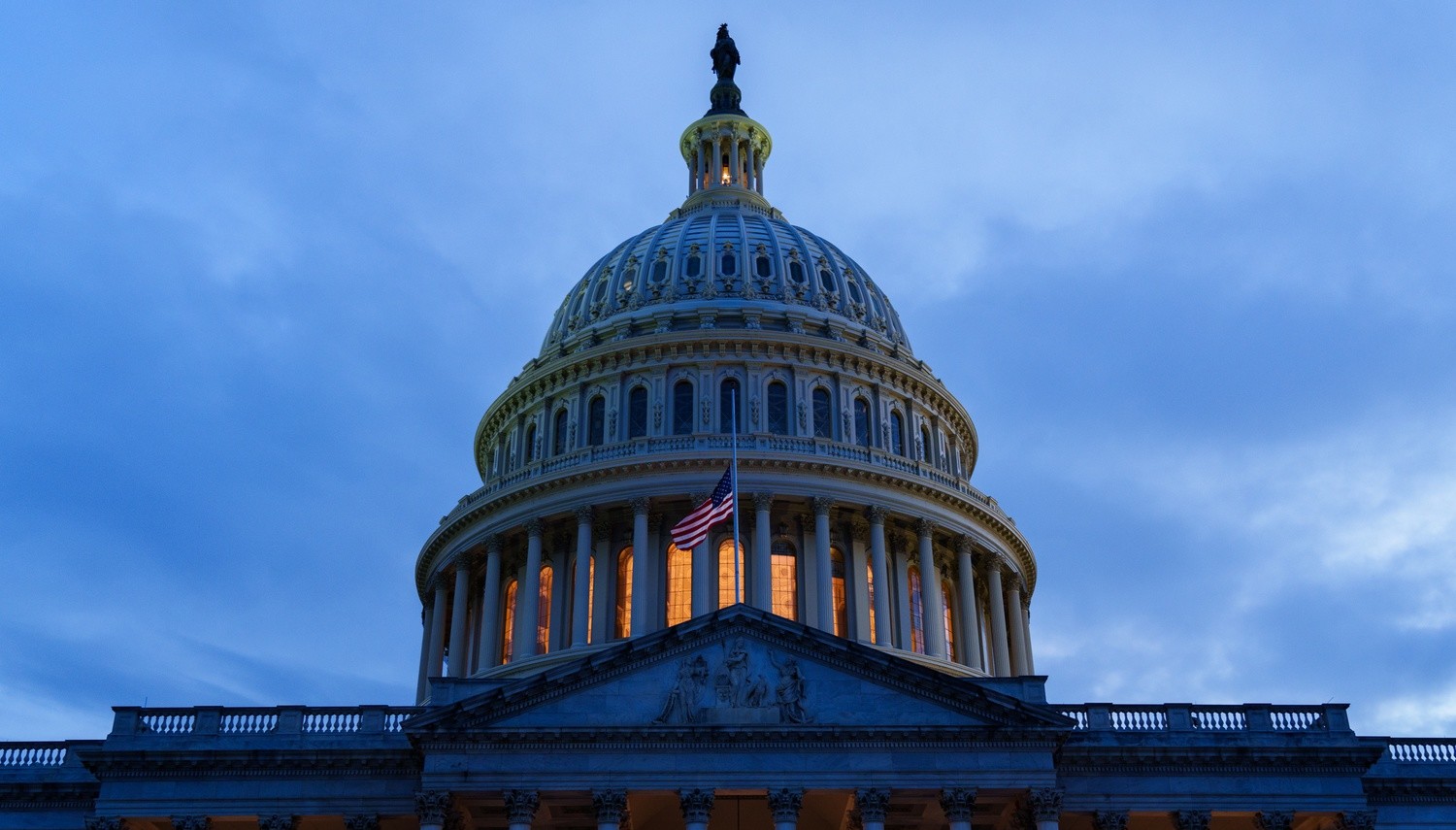College sports has experienced its own episode of House of Cards this week on Capitol Hill.
Ahead of a potential vote to pass the SCORE Act in the House of Representatives next week, House Majority Leader Steve Scalise (R., La.), as well as other House Republicans and NCAA/conference lobbyists, have been pushing hard to ensure they have enough votes to pass the bill, sources tell Front Office Sports. It’s unclear at this point whether the SCORE Act would pass the House.
“Not just Scalise, but the entire lobbying apparatus … is working overdrive,” one congressional aide tells FOS.
Since 2019, the NCAA and power conferences (including the Pac-12) have spent millions on Capitol Hill lobbying for a law that would allow them to keep college athletes’ status as amateurs and win back control to set and enforce rules in college sports. The overarching goal of the NCAA and conferences is to gain antitrust protections that would allow them and the new College Sports Commission to enforce rules around compensation, transfers, and eligibility without fear of lawsuits. They also seek a federal standard for NIL (name, image, and likeness) deals overriding state laws, and a guarantee that athletes would never be university employees.
The SCORE Act satisfies those demands. It also puts in place new regulations for agents, minimums for how many sports programs a school must sponsor, and codifies the revenue-sharing terms of the House v. NCAA settlement. The bill made it through two committee markups along party lines before the August recess.
Sources FOS spoke with have given conflicting information regarding whether the SCORE Act will get enough votes to pass the House (the bill needs 218 votes to move to a Senate vote). The Republicans currently have a six-seat majority (219 Republicans, 213 Democrats including newly elected Virginia Democrat James Walkinshaw, and three vacancies) and could theoretically pass the bill on party lines.
But on Sunday night, several House Republicans, including Rep. Chip Roy (R., Texas) and Rep. Wesley Hunt (R., Texas), criticized the SCORE Act on social media. They appeared to be following the lead of Texas Tech Board of Regents chair and oil billionaire Cody Campbell—a friend of President Donald Trump—who has launched a lobbying blitz of his own.
Campbell told FOS that he views the SCORE Act as a positive first step in college sports policy reform, but says it’s an incomplete solution. He believes the NCAA shouldn’t be granted an antitrust exemption, and, in fact, says another governing body should take its place. In both interviews and ads during college football broadcasts, Campbell has argued that the Sports Broadcasting Act of 1961 should be amended so that all FBS schools could pool their football media rights, using the extra earnings to fund women’s sports and Olympic sports.
It’s still unclear how the Texas representatives will come down on the SCORE Act. “This bill needs work,” Rep. Lance Gooden (R., Texas) posted Sunday night. “Looking forward to thoughtful debate and a finished product we can all be proud of.” Gooden is listed as one of the cosponsors of the legislation. His office did not respond to a request for comment clarifying his position.
Rep. Michael Baumgartner (R., Wash.) also criticized the bill—but he has already been on record saying he doesn’t endorse it.
Two Democrats who signed onto the original bill as cosponsors in July, Rep. Janelle Bynum (D., Ore.) and Rep. Shomari Figures (D., Ala.), would presumably vote for it. Since then, three other Democrats have signed on as well.
One place the pro-SCORE Act lobby is looking for votes, one source tells FOS: the Congressional Black Caucus. Two conferences representing historically black colleges and universities—the Mid-Eastern Athletic Conference and the Southwestern Athletic Conference—have been lobbying CBC members to vote yes, the source says.
CBC chair Rep. Yvette Clarke (D., N.Y.) has come out against the SCORE Act. The National Urban League, a civil rights group with influence in the CBC, has also come out against the bill. (The two conferences did not respond to a request for comment, nor did Clarke’s office.)





![[Subscription Customers Only] Jun 15, 2025; Seattle, Washington, USA; Botafogo owner John Textor inside the stadium before the match during a group stage match of the 2025 FIFA Club World Cup at Lumen Field.](https://frontofficesports.com/wp-content/uploads/2026/02/USATSI_26465842_168416386_lowres-scaled.jpg?quality=100&w=1024)
![[Subscription Customers Only] Jul 13, 2025; East Rutherford, New Jersey, USA; Chelsea FC midfielder Cole Palmer (10) celebrates winning the final of the 2025 FIFA Club World Cup at MetLife Stadium](https://frontofficesports.com/wp-content/uploads/2026/02/USATSI_26636703-scaled-e1770932227605.jpg?quality=100&w=1024)










